Minister Nguyen Kim Son chaired the conference. Also attending were Deputy Minister Nguyen Van Phuc; representatives of central ministries and branches; leaders of departments, bureaus and units under the Ministry; and representatives of higher education institutions across the country.
Consider ordinary problems in special contexts
Speaking at the opening of the conference, Minister Nguyen Kim Son said that the Higher Education Conference is an annual activity to summarize the results achieved and orient the tasks to be implemented in the coming year.
As for this year's conference, the Minister shared the special context of being held in September - the time when the whole country celebrates the 80th anniversary of National Day, the 80th anniversary of the tradition of many ministries and sectors, including the Education and Training sector. On September 5, at the National Convention Center, the whole sector solemnly held the Opening Ceremony of the new school year combined with the celebration of the 80th anniversary of the establishment of the Ministry of National Education with the participation, joy and encouragement of all the leaders of the Party and State.
This year's conference was also held in an exciting atmosphere for the entire sector, as education and training received special attention from the Party and State leaders. Resolution No. 71-NQ/TW once again affirmed that education and training is the top national policy, an important factor that determines the future of the country. That brings honor and opportunity; at the same time, it also places great responsibilities and duties on the shoulders of the education sector.
In the context of the conference, the Minister also mentioned that the Ministry of Education and Training and other ministries and branches have just undergone a period of arrangement and restructuring; the Ministry of Education and Training has taken over the vocational education sector. Provinces and cities have arranged, restructured and built two-level local governments. This has greatly affected the activities of higher education institutions; raising the question of how to promote higher education in the new context of the country.
The Law on Higher Education is also being adjusted to be submitted to the National Assembly at the upcoming 10th session. Along with that is the requirement to widely implement the Education Development Strategy to 2030, with a vision to 2045; Planning the network of higher education and pedagogical institutions for the period 2021 - 2030, with a vision to 2050.
The conference was also held in the context of the Party and State issuing many new policies that need to be implemented; including Resolution No. 57-NQ/TW on breakthroughs in science and technology development, innovation and national digital transformation; along with many other important resolutions and policies. The Party Committee of the Ministry of Education and Training was assigned the task of preparing a plan to arrange focal points under Party organizations and propose a new organizational model for Party organizations in educational institutions.
With the new context and many new issues, the Minister said that it is necessary to consider normal issues in a special context. Therefore, the discussion at the conference needs to focus on finding solutions for the education sector, including higher education, to operate in accordance with regulations and progress; to undertake and complete the important responsibilities, requirements and tasks set by the Party, State and society.
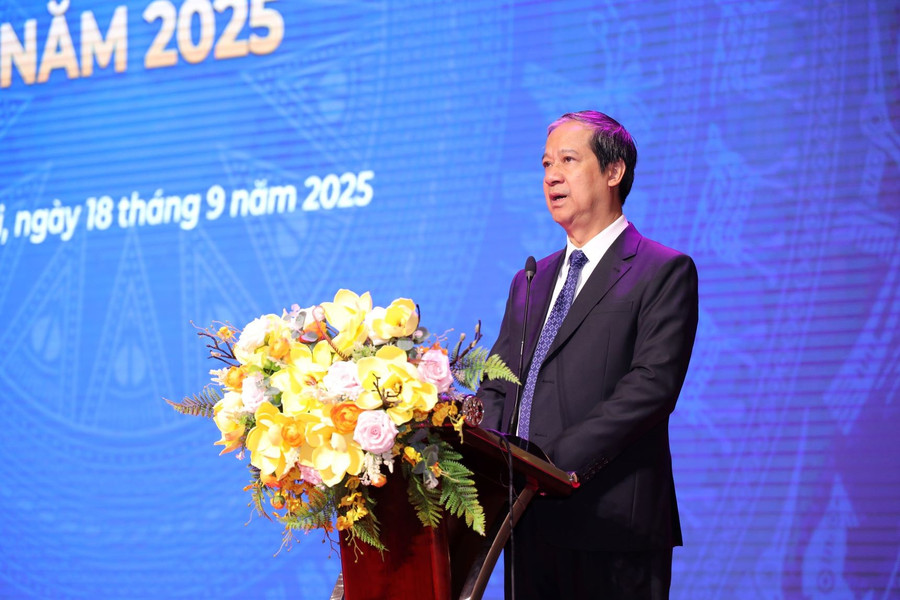
The legal system is strengthened with new support mechanisms and policies.
At the conference, Director of the Department of Higher Education Nguyen Tien Thao reported on the implementation of higher education tasks in the 2024-2025 school year with details of the results achieved, remaining difficulties, limitations and causes; proposed the implementation of key tasks in the 2025-2026 school year for higher education.
In terms of institutions, the Law on Higher Education has created a legal corridor for universities to implement their autonomy. However, because the Law on Higher Education simultaneously and directly regulates issues related to: organizational structure, personnel, finance, and assets, while specialized legal regulations in these areas have not been amended synchronously, it has caused many difficulties, reducing the effectiveness of implementing the autonomy of higher education institutions.
In the process of implementing Law 34/2018/QH14, higher education institutions still face many difficulties and obstacles because the legal and sub-law documents are not unified and overlap, leading to unresolved conflicts. Resolution No. 71-NQ/TW of the Politburo on breakthroughs in education and training development has removed these institutional bottlenecks.
The work of building and perfecting laws was implemented promptly, closely following Resolution 66-NQ/TW, the quantity and quality of issued documents increased, contributing to removing difficulties and institutionalizing the policies of the Party and State. The legal apparatus was consolidated with new support mechanisms and policies; the work of reviewing and systematizing documents, disseminating higher education, communicating policies and monitoring law enforcement was organized regularly, diversely and creatively, gradually improving legal awareness, discipline and effectiveness of state management of education.
Regarding lecturers and managers, the Department of Teachers and Education Managers has taken the lead in advising on the development of the Law on Teachers and submitted to the Ministry's leaders to issue synchronous directive documents, creating favorable conditions for localities and educational institutions to implement policies and regimes for teachers, including guidance on decentralization of consideration and appointment of professional titles and promulgation of internal administrative procedures under the management of the Ministry of Education and Training; has organized training sessions to contribute to improving the quality of teaching staff.
In addition to the achieved results, the financial autonomy mechanism still has difficulties and obstacles that need to be resolved. The annual regular budget continues to be cut, causing difficulties for units in ensuring training quality; especially in completing the program, strengthening facilities, equipment, etc.
Tuition fees have not yet been able to fully cover training costs due to competitive pressure in enrollment, and because increasing tuition fees will affect social security, schools still offer tuition fees that do not fully cover costs, which also affects the unit's revenue.
Resources from the state budget for investment in science, technology, innovation and digital transformation are still limited, too low compared to the potential of the science and technology system and human resources of higher education institutions. The financial mechanism for science, technology, innovation and digital transformation activities in general and in higher education institutions in particular still has many problems...
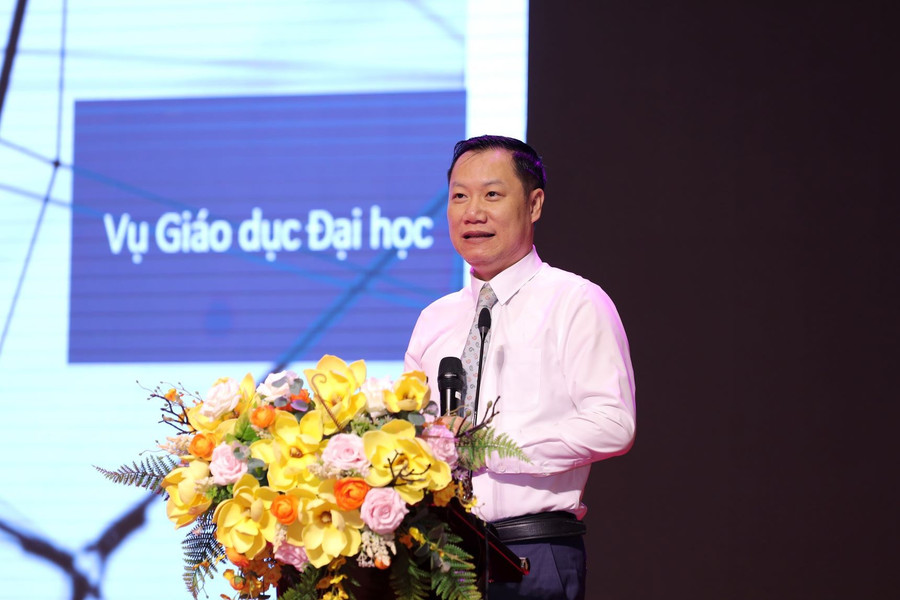
Pedagogy and key engineering and strategic technology sectors strongly attract excellent candidates.
The university and college admissions in 2025 will remain stable, while promoting the advantages of 2024. The new point is to organize only one general admission round after the high school exam, requiring the review of transcripts based on the results of the entire 12th grade, standardizing the conversion of admission scores and limiting bonus points/bonus points to create fairness. The system is expanded with the participation of 194 colleges.
The general admission support system has been operating stably, overcoming many shortcomings of previous years. The number of candidates registering for the exam reached 852,000 with 7.6 million wishes for more than 4,000 majors and training programs of more than 500 universities and colleges nationwide. The shortcomings of organizing early admission and dividing the quota between admission methods and combinations have been overcome.
The entire admission process is transparent, minimizing unreasonable differences in benchmark scores between methods and admission combinations for the same major and school. As a result, 625,477 candidates confirmed their enrollment (an increase of 13.8% compared to 2024). The high admission rate shows the increased trust of learners and society in the quality of training.
Pedagogical and key technical and strategic technology majors strongly attract excellent candidates, especially at top universities, while the average benchmark score in 2025 is about 3 points lower than in 2024. The benchmark scores of majors and schools are strongly differentiated, especially STEM majors, which have improved significantly.
In particular, in the 74 majors with a standard score based on the high school graduation exam score of 28/30 or higher, there are 50 pedagogical majors and 17 key technical majors and strategic technologies (computer science, artificial intelligence, semiconductor microchips, control and automation, etc.).
However, in 2025, some training institutions still made mistakes and handled them slowly, causing anxiety and frustration for candidates and their families. Specifically, in the general admission round, 14 out of more than 500 admission agencies of higher education institutions made mistakes that significantly affected the candidates' admission results.
Training scale continues to grow, scientific research records many results
In the 2024-2025 school year, the STEM block (Block V) will increase sharply to more than 707,000 students; the health block will increase by nearly 174,000; and business - law by more than 576,000. Master's and doctoral degrees will also expand significantly, especially in technology, engineering and social sciences.
Regarding opening majors, after Circulars 02/2022 and 12/2024 were issued, schools have proactively opened a series of new majors. In 2024 alone, 215 undergraduate majors, 75 master's majors and 27 doctoral majors were opened under an autonomous mechanism. This is an important step forward, creating conditions for schools to quickly meet human resource needs in high-tech fields such as artificial intelligence and big data.
Scientific research and innovation work recorded many results. In 2025, the Ministry of Education and Training approved 261 ministerial-level topics, maintaining the requirement to publish on WoS/Scopus. In 2024, there were 34 Q1 articles, 249 Q2 articles on WoS; 170 Scopus articles; along with hundreds of books, applied products, inventions and useful solutions. International publications continued to increase: in 2024, there were 15,498 WoS articles and 22,640 Scopus articles, of which universities contributed about 85%.
Students are also actively involved in research. In 2025, 112 units participated in the Student Science and Technology Award with 619 topics, the highest number in many years, many topics were published internationally. Assessment and ranking: Towards international standards.
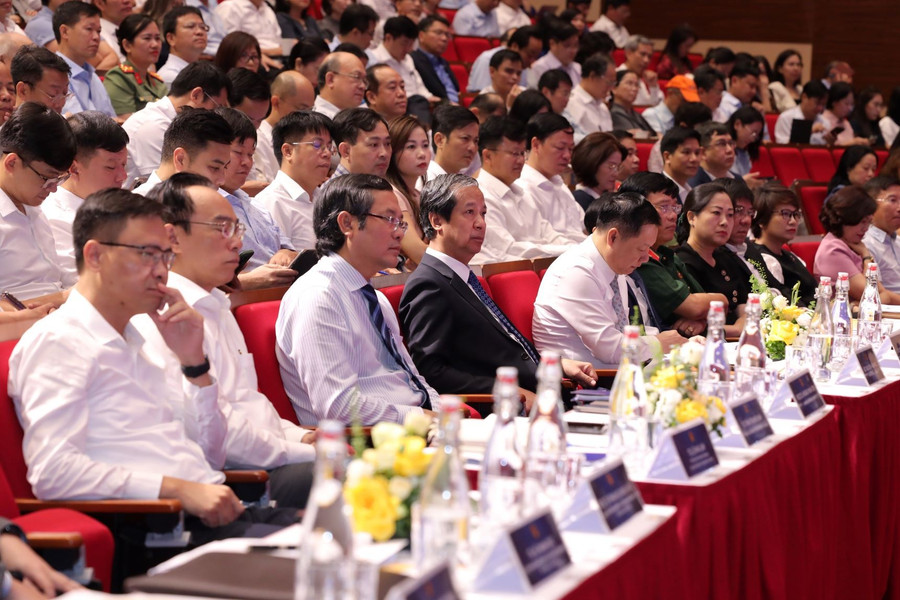
The work of ensuring and assessing the quality of higher education has achieved many positive results.
The work of ensuring and assessing the quality of higher education has achieved many positive results, with a completed system of legal documents, effective monitoring and recognition of accreditation organizations, affirming their role in improving quality, autonomy and accountability.
Higher education institutions have established specialized units, built quality assurance systems, and proactively improved according to international standards. The team of auditors has been strengthened through training, examinations, coaching, and international cooperation, contributing to capacity building, increased transparency, prestige, and promoting sustainable integration.
The international rankings show that Vietnam’s higher education has undergone many positive changes. Many schools have appeared for the first time, many have improved their position, and are prominent in international cooperation and scientific research. The expansion of their presence on the rankings affirms their prestige, enhances the image of Vietnam’s education, and reflects the effectiveness of autonomy policies, governance innovation, enhanced accreditation, and the building of a culture of quality, contributing to promoting sustainable integration…
Regarding limitations, the legal document system on this content is still slow to adjust, lacks synchronization, and does not meet the reality. The supervision of accreditation organizations is only at a certain level, and the management effectiveness is not high. Some educational institutions have specialized units, but their activities are still formal, and quality improvement is not closely linked to the development strategy of educational institutions. The number of recognized facilities and programs has increased but is not balanced by fields and training groups, and participation in accreditation according to international standards is still limited. The team of auditors has been supplemented but is still lacking in quantity, expertise and experience, and does not meet the requirements of integration...
Expected orientation of key tasks for the 2025-2026 school year with higher education:
Focus on implementing Resolution No. 71-NQ/TW dated August 22, 2025 of the Politburo on breakthroughs in education and training development and Resolution No. 57-NQ/TW on breakthroughs in science, technology, innovation and national digital transformation; mobilize all resources to improve capacity and operational efficiency, create a strong shift in the quality of training and research throughout the system; prepare well the premises for the new development stage of higher education, make strategic breakthroughs in human resources, especially high-quality human resources in key fields and sectors.
Source: https://giaoducthoidai.vn/nhung-van-de-dat-ra-voi-giao-duc-dai-hoc-trong-boi-canh-moi-post748868.html


![[Photo] Prime Minister Pham Minh Chinh chairs the first meeting of the Central Steering Committee on housing policy and real estate market](https://vphoto.vietnam.vn/thumb/1200x675/vietnam/resource/IMAGE/2025/9/22/c0f42b88c6284975b4bcfcf5b17656e7)





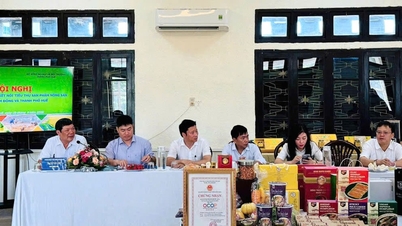

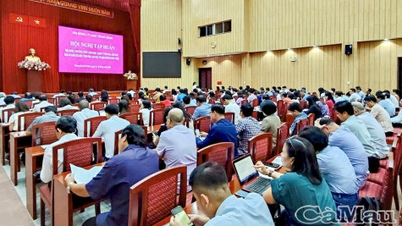



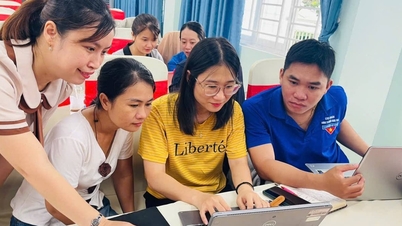

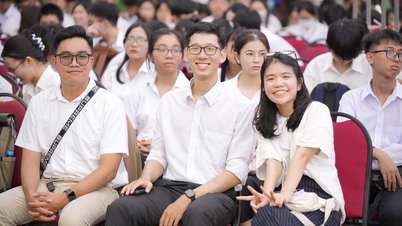







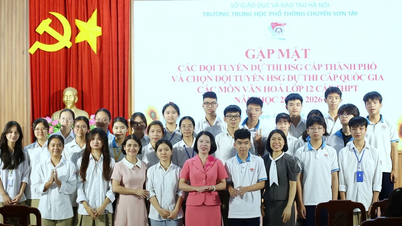
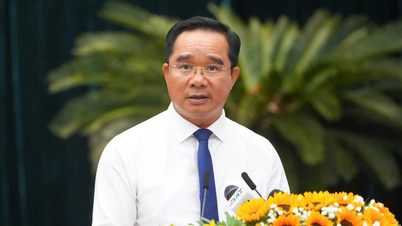




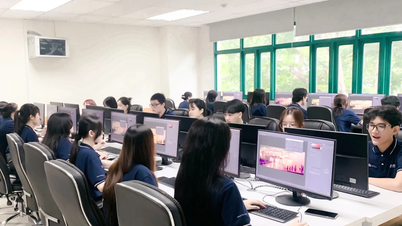

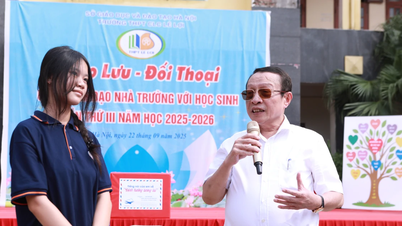

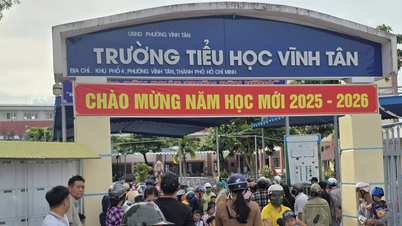

![[Photo] General Secretary To Lam presents the First Class Labor Medal to the Vietnam National Energy and Industry Group](https://vphoto.vietnam.vn/thumb/1200x675/vietnam/resource/IMAGE/2025/9/21/0ad2d50e1c274a55a3736500c5f262e5)




































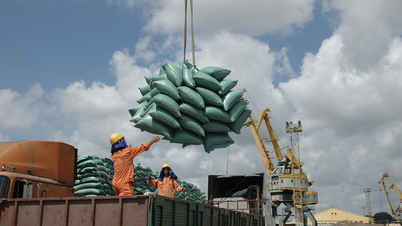











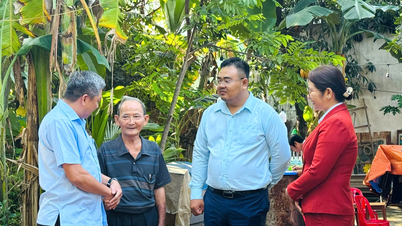















Comment (0)